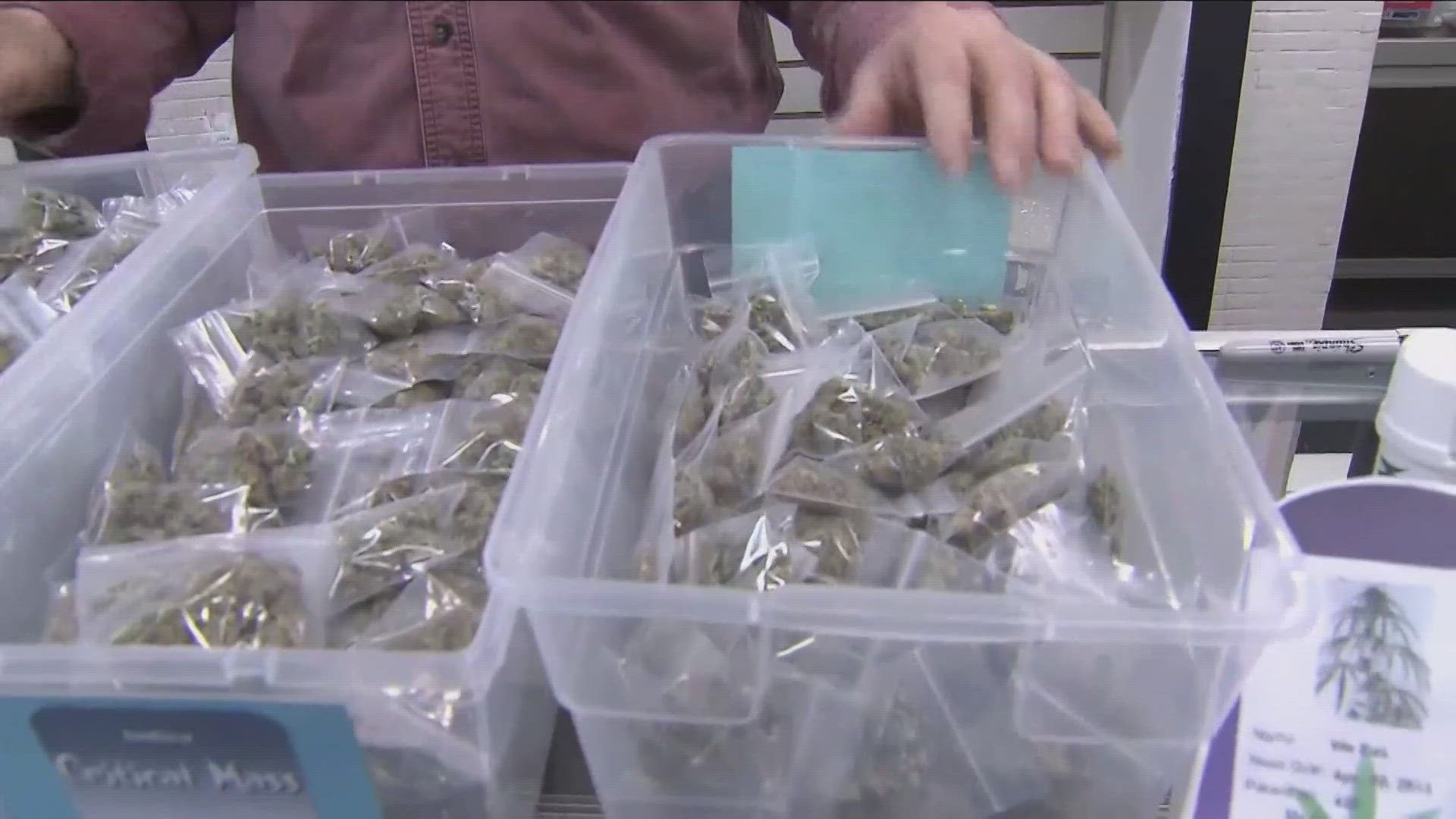BUFFALO, N.Y. — With only five legal dispensaries operating across New York outside of sovereign land, whether in Western New York or downstate over the past couple of years a 'gray market' has filled the gap in the state's slow and legally challenged rollout.
A situation, much to the disdain of the newly created state agency that oversees the new industry.
"We are out in these shops all the time, making seizures, taking product," said Office of Cannabis Management Director of Enforcement Dan Haughney.
They have also issued cease and desist letters like the ones delivered to CannaGlam in Lackawanna and Green Vision in Depew, Buffalo, and Amherst.
Over 200 such letters have been issued and 75 stores shut down according to a spokesperson for the Office of Cannabis Management, citing operations that weren't licensed but were still selling recreational weed in New York.
For a fledgling agency without a lot of manpower, enforcement proved challenging in 2022 according to Joe Schafer, an attorney at Lippes Mathias who specializes in cannabis law, which left a window for 'gray market' expansion.
"The issue was there wasn't a lot of teeth behind the cease and desist letters other than you're never going to get a license if you don't stop right now. And the issue is these gray market operators are making money hand over fist," Schafer said.
The market is not unlike the ones that popped up in California after that state legalized recreational weed and others around the country. 'Sticker' or 'gift shops,' as they're often called, use another product as a means to gift cannabis products. For example, you buy a sticker for $50 and receive weed as a bonus.
"They've popped up across the state. They try to play semantics with how the law is worded and realistically what they're doing is not allowed by OCM and frankly, it's not allowed by law," Haughney said.
But with so much financial incentive, the risk is often worth it for owners who may have expected New York's market to present an opportunity earlier than has been the reality.
The state's conditional licensing or CAURD program opened its first of what will be 300 dispensaries in December, but a lawsuit is blocking Western New York and four other regions from taking part. Another lawsuit filed last week is also now challenging the program.
However now, with skin in the game, so to speak, the state will have more incentive to increase enforcement. The state has three legally licensed dispensaries located in New York City, one in Ithaca, and one in Binghamton.
"As we move forward we're going to do everything to stop these illicit operators," Haughney told 2 On Your Side.
Guidelines for general applicants are still being written with access possible by the fall. Haughney urged patience, despite the growth in the 'gray market' - the consequence being applicants could be restricted from ever applying.
But frustration expressed by Schafer's clients has not been uncommon. For those who thought and saw so much promise early on, the now 2-year-old startup may be dragging.
"People who looked at the MRTA as creating generational wealth, take advantage of the social equity program. Start in an industry where they previously had some expertise where they weren't necessarily allowed and is now valued at anywhere between a $4 and $8 billion industry," he added.
Although Schafer also urged patience.

